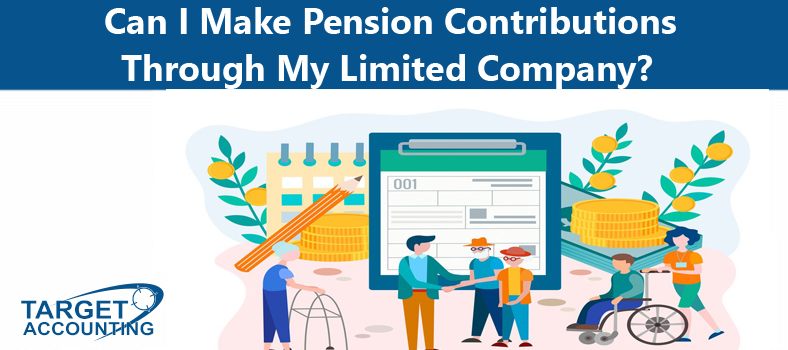
Pension contributions are one of the best ways to get tax breaks if you have a limited company. If you are the director of the company or have employees, you can avail of a tax break for you as well as for your employees. In any case, according to the law, you are auto-enrolled by the government to contribute to pension funds with some minimum amount. However, making slightly more than this given amount can be beneficial to you.
When it comes to contributing to a pension fund, many questions arise in the contributor’s minds. Let us check out how you can make these contributions, its advantages, and other important details associated with it.
Why Should You Start Making Contributions Through Your Limited Company?
As already mentioned, you can save a lot of taxes by contributing to the pension funds through your Limited Company. When you pay to the pension funds, you reduce the company’s taxable profits and, hence, reduce the overall corporate tax liability. This makes the entire process more tax-efficient when you do it through your limited company instead of taking out money from your personal funds.
However, you must note that the pension schemes are of a complex nature, and it is a good idea to take advice from an expert who has been working in the field for a while. A good financial advisor can guide you through the employee pension scheme so you can avail of the maximum tax benefits.
You can get in touch with one of our financial experts who have been working in the field of pensions, tax savings, and investments at Target Accounting to get specialized guidance and advice. This can help you plan your finances well and streamline your accounts to save a lot of taxes.
One of the questions that might come to your mind would be about the total tax that you can save through these contributions. Let us check out!
Total Tax Savings Through Pension Contributions
The corporation tax rate for the years 2019-20 and 2020-21 is 19%, which means a profit of £100 would require a tax contribution of £19. Hence, the final amount that you will get from your profit would be £81.
However, when you pay £100 for an employee’s pension fund, it would cost your company £81 because you will get a reduction in the total Corporation Tax that is required to pay. In addition to that, the £100 that you contribute will be an investment that will most likely grow within the pension fund.
Amount That Can Be Contributed to The Employee’s Pension Scheme
As long as you work within the limits and rules of the HRMC, you can pay as much as you wish to the Employee’s pension scheme. You need to work within the annual allowance to make sure that it is tax-free for you. For the current financial year of 2020-21, this limit is £40,000.
However, you must note that the total amount should not exceed the overall profits of the company. Otherwise, it might raise questions from the revenue and the custom’s department.
The Age Limit To Withdraw from the Pension Funds
As a general rule, you can start withdrawing money from your pension fund from the age of 55. Hence, it can be greatly beneficial if you are planning for early retirement. Alternatively, it can be an additional income if you continue to work after the age of 55. You can always get good advice on navigating this money when you talk to a financial expert.
What Can You Do If You Extra Funds?
If you want to add extra funds, you can still put it in the pension scheme for your employees and take advantage of the forward carry scheme. Under this scheme, you can use the yearly allowances that were not used for tax savings in the last three years. In order to use this scheme, you must use the annual allowance completely for the current tax year and then move on to using the unused ones that are carried forward from the previous years.
Lifetime Allowance Limits
It is important to note the lifetime allowance limits, which is the total amount that you can withdraw in the form of a retirement income or a lump sum amount without having to pay taxes. Under the current tax scheme of 2020-21, this amount is £1,073,000, which has increased from last year. In the tax year of 2019-20, it was £1,055,00.
As mentioned above, the matters of taxation and pension are best handled by experts. If you are looking for financial or pension experts to get professional advice and save taxes, you can get in touch with Target Accounting. We will be very happy to assist you!

